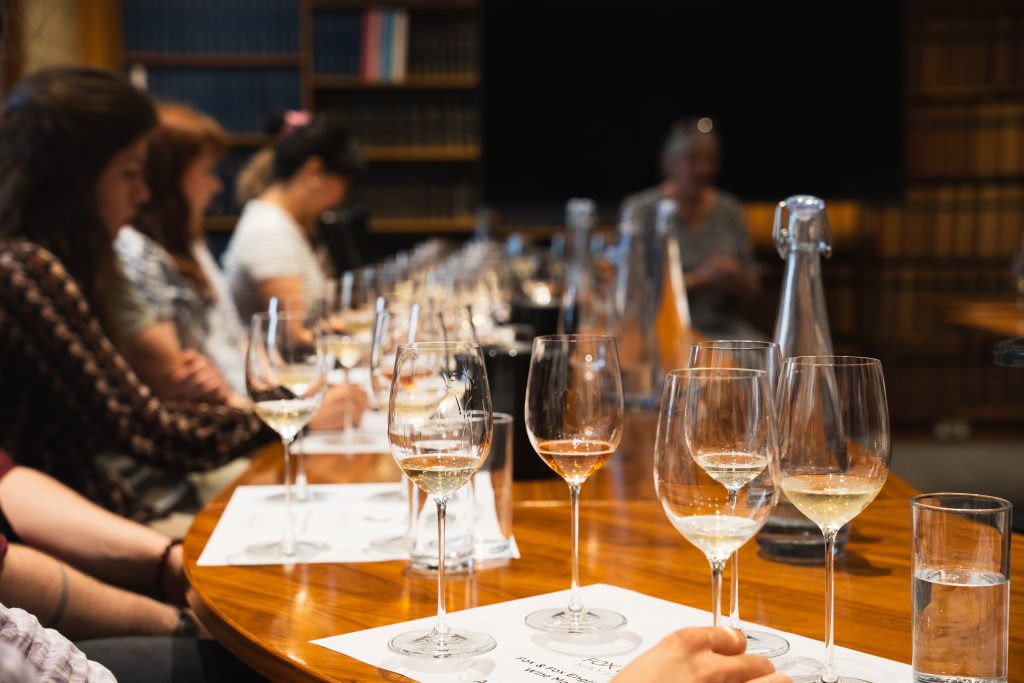Amathus eyes ‘exponential growth’ of fine wine sales
UK specialist drinks importer, distributor and retailer Amathus has said that fine wine sales have the potential for “exponential growth”, as it remains optimistic about the state of the high street.

Speaking to the drinks business at its annual tasting last week, head of wine Jeremy Lithgow MW said that the business was in “a very heathy position”, with profits up on last year, and its retail, fine wine and private client business, which makes up around 20-25% of the business (the remainder comprising its wholesale business) showing growth.
Lithgow noted that fine wine sales had been growing “rapidly” both in store and online, adding that the team had initially “underestimated the demand” and were finding new customers, provided they were “the right wines at the right prices”.
The focus, he said, had been on ready-to-consume vintages in store, so 2014 is the youngest vintage available in sore, with many older than that.
The retail business includes the company’s private client business, which launched in April with the “great vintage but challengingly priced” 2022 en primeur Bordeaux campaign. Although still “nascent”, this was likely to see sales in line with its one of its bricks and mortar stores by the end of next year, Lithgow said, whereafter the private client sales team was likely to expand and “we hope [to see] exponential growth after that.”
“We’re not far of where we were pre-pandemic,” he said, “The trade business is good – we’ve had a slight repositioning so it’s not the same business we were doing pre-pandemic, but the style of the business is different – it’s more about the quality.”
The team has not only boosted its agency business, focussing more on the exclusive wines, as well as concentrating on organics, which is now almost a “default position”.
“More and more of what we import and stock has got an organic side today, our priority when looking for a new producer is the default position is that they’ll be organic, biodynamic, or undergoing organic conversion,” he said.

This, he notes is being driven increasingly by trade customers rather than consumers, who are still “slightly less aware” than restaurants or retailers but also makes commercial sense in adding an extra selling point.
“More and more [customers] are asking for specifically organic wine list or proposals,” he said. “Obviously, we’re not going to manage to be completely organic everywhere, Burgundy, for example is a bit of struggle,” he notes, but whereas it was seldom talked about in Bordeaux ten years ago, now more and more producers are undergoing trials and conversion.
Partner Content
“The range of organic is becoming much broader as more and more people are converting. The world becoming a warmer place makes it easier in many regions to go organic.”
In addition to its core areas of Bordeaux, Champagne and Burgundy (“It’s hard to get, but we are very fortunate with our partnerships,” Lithgow notes) more niche regions such as Greece have been seeing “promising growth”, he says.
“Whatever we invest in stockwise rewards us in sales,” he said. The team had moved on from stocking big branded wines and spirits to focus more on direct imports and growing a unique offer with wines that the were passionate about.
“That’s had an effect, and although some customers have fallen away, our profits have increased,” he said.
Death of the high street “greatly exaggerated”
In terms of the retail side, Lithgow is optimistic about bricks and mortar retail sales, noting in particular the enthusiasm of the company’s store teams, who “embraced newness”.
This gives the business more flexibility as an importer, he says, as they can “take a chance” on something that may be more difficult to sell to the trade, which can be hand-sold through the retail business.
Currently Amathus has nine stores, with one more planned to open by the end of this year, and three more following in 2024. Of the four, three will be based in London.
The company has also boosted its ecommerce, having started slightly “behind the curve” when the pandemic struck. “The website was being developed when Covid hit,” Lithgow explained.
Related news
Castel Group leadership coup escalates
For the twelfth day of Christmas...
Zuccardi Valle de Uco: textured, unique and revolutionary wines




